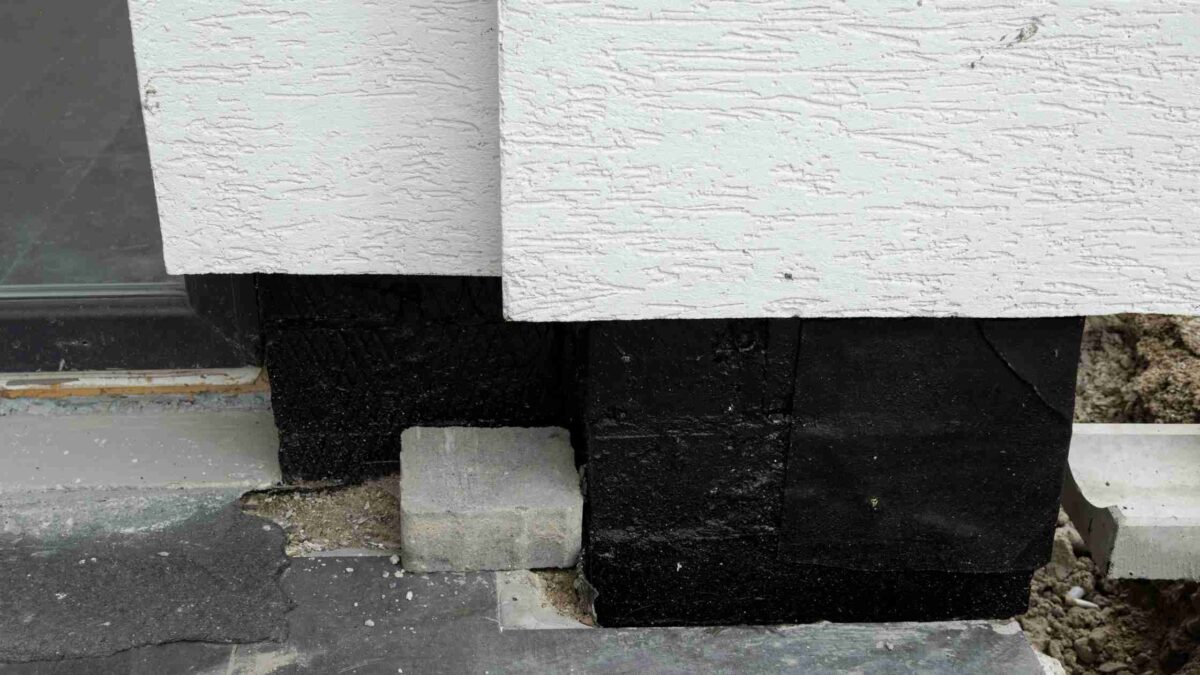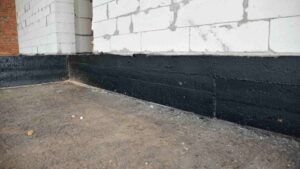
Toronto’s thriving architecture and culture have a unique issue for homeowners to keep basements dry. Toronto’s weather is unpredictable, marked by extreme winters and heavy rain and flooding, which can cause issues with water intrusion in basements. Basement leaks aren’t only an inconvenience. It can cause major damages to the foundation of your home, cause the growth of mold, and even put a strain on the safety of both your family and home.
This comprehensive guide provides Toronto citizens with necessary knowledge to tackle basement waterproofing in a proactive manner. We’ll look at the indicators of water issues, delve into the various methods of waterproofing (both indoors and outdoors) and guide you through the procedure for water proofing the basement.
Why Waterproofing Matters in Toronto
The basements in Toronto are prone to water infiltration because of many reasons:
- High water table: The town is in a flat, low-lying region with high water tables. This means that pressure from groundwater can cause water to flow towards the basement’s walls.
- Clay soil: Clay soil, which is prevalent throughout Toronto keeps water in good condition, which increases the pressure on the foundation walls.
- Freeze-thaw cycles: Toronto’s fluctuating temperatures can cause water trapped in the soil to freeze and expand, putting stress on foundation walls and potentially causing cracks.
- Heavy rainfall: Intense downpours can overwhelm drainage systems, leading to water pooling around the foundation and seeping into the basement.
Recognizing the Signs of Water Problems
Early detection is key to preventing extensive damage. Here are some telltale signs your basement needs waterproofing:
- Visible cracks: Cracks in the foundation of floors, walls or around windows or doors are the entry areas for flooding.
- Water stains: Stains on walls, floors, or ceilings indicate past or ongoing water leaks.
- Mold and mildew: Musty odors and visible mold growth are signs of excessive moisture.
- Efflorescence: A white, crystalline substance on basement walls signifies water migration through concrete.
- Dampness: Feeling dampness under foot or noticing condensation on walls suggests high humidity levels.
Choosing the Right Waterproofing Method
There are two major methods of water proofing basements both exterior and interior. What is the desirable method for the house is determined by the extent of the problem and the foundation type and the budget you have set.
Interior Waterproofing
Interior waterproofing techniques deal with water leaks coming from within the basement. They’re typically less costly as external options, however they might not be appropriate for every situation. If so, here are some of the most common ways to do this:
- Waterproofing membranes: A leak proof membrane, similar to rubberized asphalt or plastic sheeting can be applied to the basement’s walls and the bottom to create a fence from humidity.
- Drain systems: A border drain system gathers water that is oohing through the walls of the foundation and then redirects it to the sump pump. The sump pump then releases the water into the drains into the house.
- Sealants: Cracks on foundation wall and foundation bottoms could be filled by using the use of hydraulic cement, and epoxy resin injection to benefit further water infiltration.

Exterior Waterproofing
Exterior water proofing methods concentrate on stopping water from getting to the walls of the foundation from the beginning. These techniques are typically more long-lasting and reliable, however they are also more costly. Here are some of the most popular techniques:
- French drains: A trench containing gravel is constructed around the foundation. The gravel lets water be able to collect and then be able to drain away from the home.
- Footing drains: A perforated pipe that is installed around the footings on the foundation drains away water prior to it reaches the walls of the foundation.
- Foundation coatings: A water-resistant coat is sprayed on exterior walls of the foundation to create an impermeable barrier to water.
- Grading: The soil surrounding the foundation has been sloped away from the home to enable water to drain naturally.
The Waterproofing Process
Here’s a general overview of the waterproofing process for a Toronto basement:
- Inspection: The skillful waterproofing professional will examine your basement in order to pinpoint the cause and extent of the problem. They will also examine your foundation’s condition and suggest which is the best appropriate waterproofing process.
- Preparation: Based on the selected method, this could require excavation to the area around foundations, removal of the waterproofing material and preparing the basement’s floor and walls.
- Waterproofing installation: The water proofing solution is put in place compatible to the industry standard.
- Backfilling (exterior methods): After waterproofing for exterior use is finished the area that was excavated around the foundation is then backfilled with drainage material that is appropriate.
- Clean-up: The working area is meticulously cleaned and areas that have been damaged are cleaned up.
Additional Considerations for Toronto Basements
- Local building codes: Ensure that your waterproofing technique is compliant with Toronto’s building code.
- Permits: Based on the size of the project, you might require permission to build at the municipal level.
- Winterization: If work to waterproof is completed in the winter months, assure proper measures are implemented to protect foundations exposed from the freezing cold temperatures.
DIY vs. Professional Waterproofing
Although some of the tasks involved in waterproofing your interior like patching small cracks, may be done as DIY projects, tackling the most serious water issues within a Toronto basement is excellent done by professionals. Here’s why:
- Expertise: Professional waterproofing contractors have the expertise and knowledge to identify the cause of leaks in the water and recommend the most effective method of solving it.
- Proper Techniques: Correctly applied materials correctly is vital to long-term performance. Professionals assure the proper application techniques and adhere to construction guidelines.
- Safety: Exterior waterproofing typically involves excavation and work around foundations. Professionals have the required safety equipment and are trained to reduce the risks.
- Guarantees: Trustworthy water proofing firms provide warranties on their work. This gives security and recourse in the event there are any issues in the future.

Finding a Qualified Waterproofing Contractor in Toronto
With a variety of waterproofing companies working in Toronto, finding the right one is crucial. Here are some guidelines to benefit you find a professional:
- Get recommendations: Ask your friends, relatives, friends, or neighbours for recommendations on trustworthy waterproofing companies they’ve dealt with.
- Check online reviews: Look for businesses with good reviews on sites like Google My Business or the Better Business Bureau (BBB).
- Get multiple quotes: Get estimates from several companies that offer water proofing to compare costs and the services provided.
- Ask questions: During the consultations make sure to ask specific questions regarding experience, options, warranty, as well as insurance coverage.
- Check credentials: Make sure the business is insured and licensed and that employees are certified to work on waterproofing projects.
Maintaining a Dry Basement
Once your basement has been sealed, regular maintenance is essential to avoid the possibility of problems in the future:
- Regular inspections: Check your basement’s floors, walls as well as the areas around doors and windows to look for cracks or leaks.
- Downspout maintenance: Ensure that downspouts are correctly positioned far sufficient from foundation, and redirect water away from your home.
- Grading maintenance: Ensure proper grading of the base of your house to warrant the water is able to drain away from the home.
- Dehumidification: Reduce the humidity of your basement with dehumidifiers in order to avoid the growth of mold.
Conclusion
Dry basements are healthy. With the benefit of the tips and advice in this extensive article, Toronto homeowners can efficiently solve the basement waterproofing issue. Be aware that prompt detection as well as competent intervention are essential to the most effective and durable solution, ensuring the safety of your home from damage and creating the most secure and safe living space.





